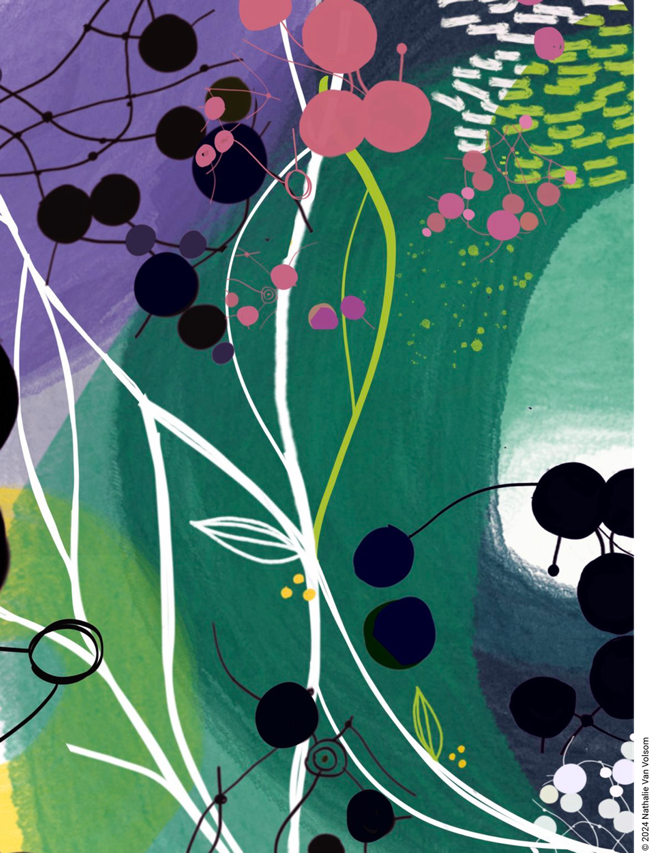Transgressive Knowing
Lying Down with the Trouble
DOI:
https://doi.org/10.47061/jasc.v4i1.8027Keywords:
transformative research, transgressive research, world-making, pluriverse, new materialismAbstract
This issue's In-Dialogue represents the intentional epitomization of many conversations the Editorial Team has been having since JASC’s inception around what we mean by 'transformative'. As convenors of the dialogue Oliver Koenig and Megan Seneque invited a small group of individuals who, in their ongoing work, have been deeply immersed in exploring research and praxis paradigms that respond ethically, critically, and creatively to the intersecting crises of our time. Together, the group set out to explore the integrity of 'research' and 'practice', their critical entanglement and co-dependence, and the nature of practices that enable worlds to be created in certain ways. Rather than attempting to arrive at a consensual understanding, the dialogue that unfolds can be seen as a mirror of the world-making practice(s) that are characteristic of transformative research
References
Barad, K. (2007). Meeting the universe halfway: Quantum physics and the entanglement of matter and meaning. Duke university Press. https://doi.org/10.2307/j.ctv12101zq
Bernard, P. S. (2003). Ecological implications of water spirit beliefs in Southern Africa: The need to protect knowledge, nature, and resource rights. USDA Forest Service Proc. RMS, 27, 148–153. https://media.tracks4africa.co.za/users/files/w386028_1755.pdf
Braidotti, R. (2023). Affirmative ethics, new materialism and the posthuman convergence. In G. di Capua, & L. Oosterbeek (Eds.), Bridges to global ethics: Geoethics at the confluence of humanities and sciences (pp. 93–108). Springer International Publishing. https://doi.org/10.1007/978-3-031-22223-8_7
Caniglia, G., Freeth, R., Lüderitz, C., Leventon, J., West, S. P., John, B., Peukert, D., Lang, D. J., von Wehrden, H., Martín-López, B., Fazey, I., Russo, F., von Wirth, T., Schlüter, M., & Vogel, C. (2023). Practical wisdom and virtue ethics for knowledge co-production in sustainability science. Nature Sustainability, 6(5), 493–501. https://doi.org/10.1038/s41893-022-01040-1
De la Cadena, M., & Blaser, M. (2018). A world of many worlds. Duke University Press. https://doi.org/10.1215/9781478004318-001
Gross-Wyrtzen, L., & Moulton, A. A. (2023). Toward ‘fugivity’ as method’. An introduction to the Special Issue. ACME, 22(5), 1258–1272. https://doi.org/10.7202/1107308ar
Haraway, D. J. (2016). Staying with the trouble: Making kin in the Chthulucene. Duke University Press. https://doi.org/10.2307/j.ctv11cw25q
Kafer, A. (2013). Feminist, queer, crip. Indiana University Press.
Kothari, A., Salleh, A., Escobar, A., Demaria, F., & Acosta, A. (2019). Crisis as opportunity: Finding pluriversal paths. In E. Klein, & C. E. Morreo (Eds.), Postdevelopment in practice (pp. 100-116). Routledge.
Kulundu, I., McGarry, D. K., & Lotz-Sisitka, H. (2020). Think piece: Learning, living and leading into transgression–A reflection on decolonial praxis in a neoliberal world. Southern African Journal of Environmental Education, 36, 111–130. 10.4314/sajee.v36i1.14.
Manning, E. (2016). Ten propositions for research-creation. In N. Colin, & S, Sachsenmaier (Eds.), Collaboration in performance practice: Premises, workings and failures (pp. 133–141). Palgrave Macmillan. https://doi.org/10.1057/9781137462466
Martin, A. (2022). Tidal pools as containers of care. Ellipses Journal of Creative research, 4. https://ellipses2022.webflow.io/article/tidal-pools-as-containers-of-care
McGarry, D. (2022). Suitably strange: Re-imagining learning, scholar-activism, and justice. Critical Studies in Teaching and Learning, 10(1), 93–115. https://doi.org/10.14426/cristal.v10i1.511
McGarry, D. (2023). When ancestors are included in ocean decision-and meaning-making. In T, Shefer, V. Bozalek, & N. Romano (Eds.), Hydrofeminist thinking with oceans (pp. 15–32). Routledge. https://doi.org/10.4324/9781003355199-2
McKenzie, F., & Miller, E. (2022). Systems mapping report: Mapping the systems that influence early childhood development outcomes. https://www.earlyyearscatalyst.org.au/wp-content/uploads/2022/08/EYC-Document-System-Mapping-Report-Aug-2022.pdf
McKenzie, F., Millar, E., Rogers, S., O’Sullivan, S., Martin, R., Machuca-Sierra, M., Enticott, Z., Barkley, E., Peterson, H., Moore, T., Fry, R., & Heery, L. (2023). Evidence for action in the early years system: Assessing system leverage points. Orange Compass, Centre for Community Child Health, Clear Horizon and Social Enterprise Finance Australia for the Early Years Catalyst. https://www.earlyyearscatalyst.org.au/wp-content/uploads/2024/01/2-of-6-E4A-The-Approach.pdf
Rose, D. B. (2011). Wild dog dreaming: Love and extinction. University of Virginia Press.
St. Pierre, E. A. (2021). Why post qualitative inquiry? Qualitative Inquiry, 27(2), 163–166. https://doi.org/10.1177/1077800420931142
Temper, L., McGarry, D., & Weber, L. (2019). From academic to political rigour: Insights from the ‘Tarot’ of transgressive research. Ecological Economics, 164, 106379. https://doi.org/10.1016/j.ecolecon.2019.106379
Downloads
Published
How to Cite
Issue
Section
License
Copyright (c) 2024 Oliver Koenig, Megan Seneque, Bayo Akomolafe , Ioan Fazey, Dylan McGarry, Injairu Kulundu-Bolus, Fiona McKenzie, Michelle Proyer

This work is licensed under a Creative Commons Attribution 4.0 International License.


